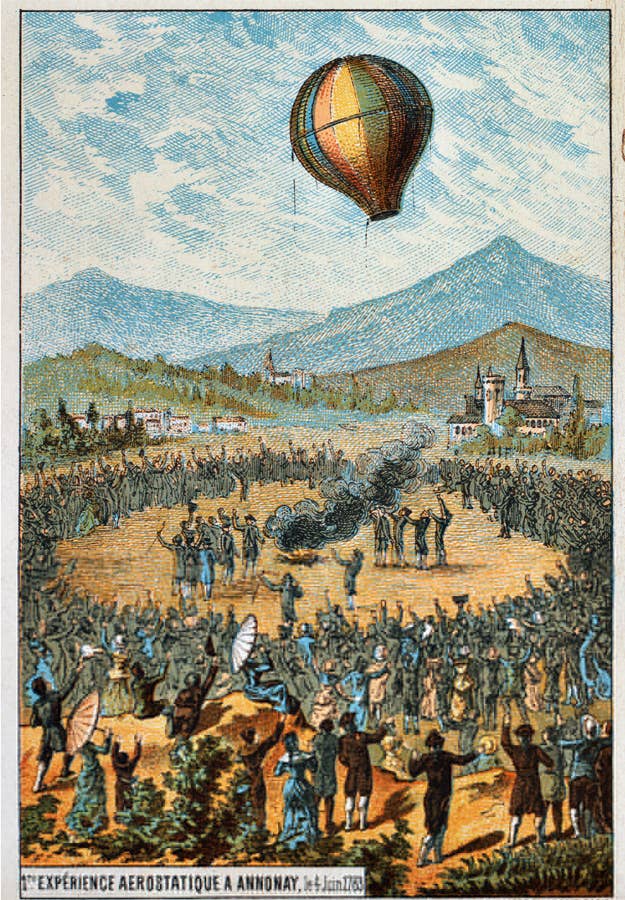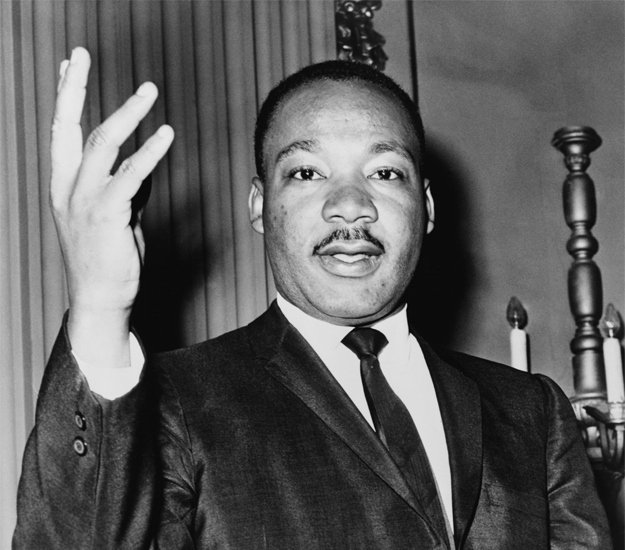June 4: You might know it as June the Fourth. Or you might be the kind of person who prefers to call it the Fourth of June and remind those who say June the Fourth of their appalling grammar.
But however you say it, June 4 – the Fourth of June – does funny things to people other than highlight their pedantry. Good things.
Also, in some cases, tragic things, but usually the kind of tragic things from which good things evolve.
Maybe because it's the middle of the year. The buzz of NYE has faded and Christmas is still so far away and we just feel the urge to do… something.
You've probably seen the growing social media campaign in the past few years to ensure the Chinese Government never forgets the atrocities it committed in order to end the Tiananmen Square protest. That's here on the list.
But here's a few other amazing moments from history that make a strong case for the Fourth of June to be celebrated globally as the International Day For Not Putting Up With This Kind Of Crap Anymore.
1411: Legitimate Stinky Cheese Day

1783: FU God/Darwin Day

1913: Taking A Hit For The Team Day
View this video on YouTube
The evidence now suggests that most of Emily Davison’s hero stock can be put down as accidental, but the fact remains that she knew how to draw attention to a cause.
On June 4, 1913, she ran out onto the track at the Epsom Derby, with the intent of placing into the public spotlight the fact that women deserved the right to vote.
Unfortunately, she was knocked down by Anmer, the horse belonging to King George V. Ten days later she died. The whole incident was caught on film by Pathe News and went Ye Old Virale in cinemas.
Davison had fought for women’s suffrage in Britain since obtaining first-class honours in her final exams only to be denied entry to university… because she was a woman.
She joined the Women's Social and Political Union (WSPU) and went to jail nine times for her sometimes daring protests, one of which included hiding in the Palace of Westminster on Census night so she could legitimately give her place of residence as the "House of Commons".
When she was retrieved unconscious from the racetrack, a WSPU flag was found on her person. It was assumed her intent was to attach the flag to the King’s horse, which would then be flying from its bridle when it crossed the finish line.
While it took the Brits until 1928 to award all women over the age of 21 the same voting rights as men, in the US, the 19th Amendment awarding women the right to vote in that country was brought before the Senate and passed in 1919, 56 ayes to 25 nays.
The date? June 4.
1940: Never Surrender Day
View this video on YouTube
Having declared three weeks earlier that the Allies would take victory “however long and hard the road may be” in the first of his three famous wartime speeches, British PM Winston Churchill needed to pull something special out of his bowker.
The German offensive had reached the French coastline of the English Channel. The eastern flank of the Allies had retreated to the seaport of Dunkirk and was in the final stages of evacuating some 340,000 personnel, leaving behind all their heavy armaments. French support was all but broken on land and in the air and an invasion of the homeland was likely.
Churchill was left to deliver the heavy tidings of both a humiliating defeat and pending invasion to his people.
He chose June 4 as his day and on it, uttered the immortal words:
“We shall go on to the end. We shall fight in France, we shall fight on the seas and oceans, we shall fight with growing confidence and growing strength in the air, we shall defend our island, whatever the cost may be. We shall fight on the beaches, we shall fight on the landing grounds, we shall fight in the fields and in the streets, we shall fight in the hills; we shall never surrender…”
And, according to rumour, then whispered to a colleague next to him that “we’ll fight them with the butt ends of broken beer bottles because that's bloody well all we've got!"
British spirit, right there for you, on June 4.
1989: Before Tank Girl, There Was Tank Man Day
View this video on YouTube
Technically more of a 24-hour prelude to a great moment, rather than anything June 4 fans should celebrate.
For the fourth of June, 1989 itself was an appalling day for human rights, being the day on which the Chinese military’s round-up (or clean-up) of the Tiananmen Square protests concluded.
So June 4, it became officially known as the June Fourth Incident, it marked the sudden end of student-led demonstrations triggered by the death of liberal reformer and former Communist Party General Secretary Hu Yaobang.
The students that gathered in Tiananmen Square wanted press freedom, freedom of speech, government accountability and more worker control over industry. They got the June 4 Massacre, which saw the Chinese military sweep in – and sweep clean – the square in a bloodsoaked two-hour rampage.
Most of the students had deserted, but the Red Cross said as many as 2600 were killed by bullets and beatings. The official Chinese Government toll is 241, but the real toll most likely sits between 400-800.
The “great moment” came the following day, when “Tank Man” made his iconic stance in front of four Chinese Type 59 tanks armed with nothing but a couple of shopping bags.
As for the legacy of this particular June 4 protest, it’s debatable. Chinese police now have anti-riot gear, which is something. But the freedoms the students campaigned for are virtually non-existent. Four million people were rumoured to have been interrogated. Sympathisers numbering in the hundreds of thousands were sent to jail, and some remain there today.
Even as late as 2009, journalists were banned from entering the square to cover the 20th anniversary of the atrocity.
But the symbol of Tank Man remains and it’s a scar on China’s social conscience that will never fade.
June 4, June 4 and... June 4

The Fourth of June
Clearly, the day to tackle a big project. Go on - history is on your side.




